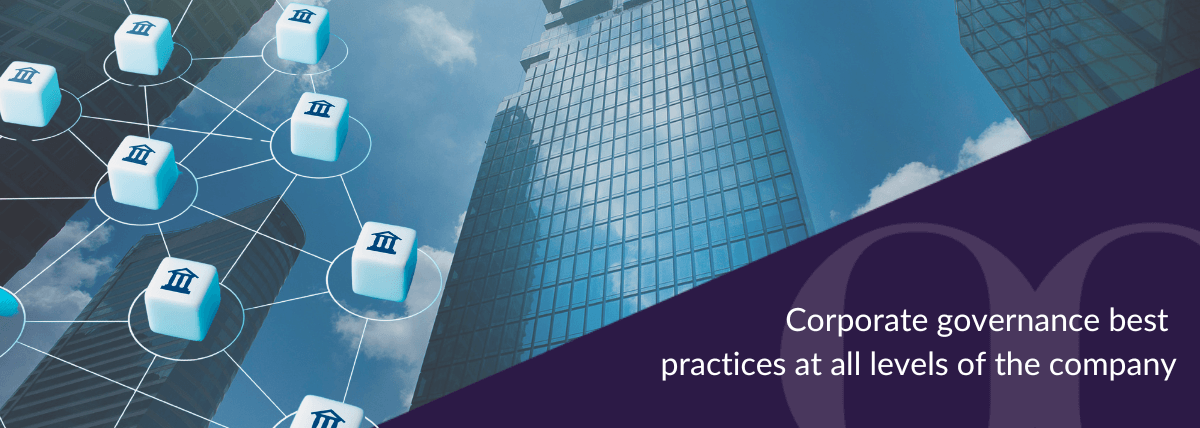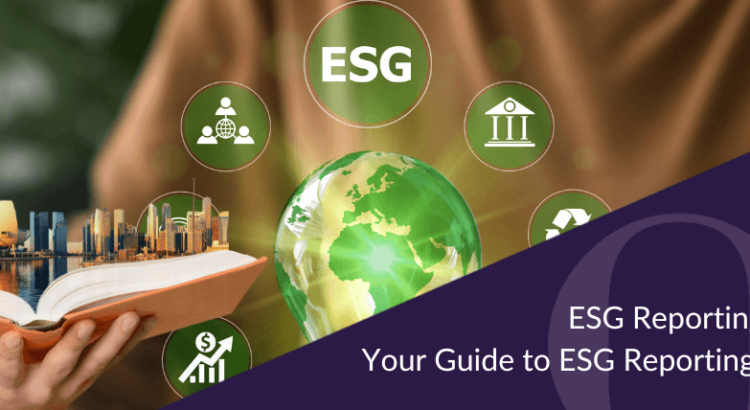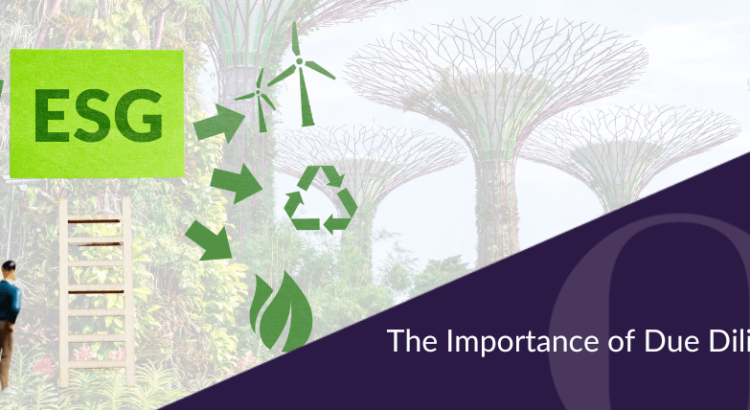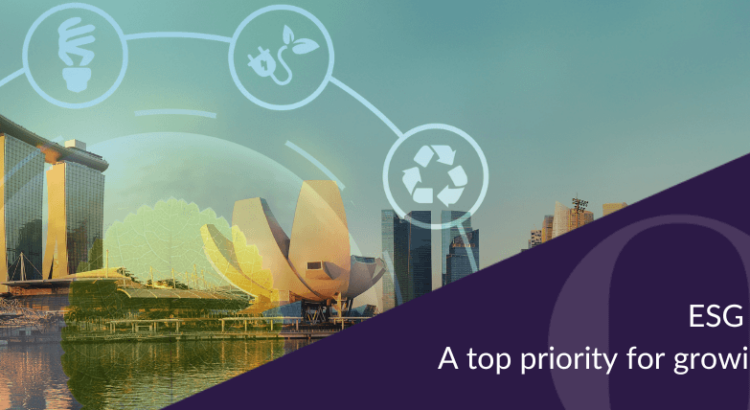In Singapore, ESG reporting is rapidly becoming a norm amongst businesses, driven by heightened investor and consumer interest in sustainability and ethical practices. For listed companies, the Singapore Exchange (SGX) introduced a phased approach to mandatory climate reporting on a ‘comply or explain’ basis, based on the recommendations of the Task Force on Climate-related Financial Disclosures (“TCFD”). From 2027 fiscal year, large non-listed companies with annual revenue of at least SGD 1 billion and total assets of at least SGD 500 million will be required to make climate disclosures.
Besides regulatory requirements, ESG reports are increasingly influential in guiding decisions, fostering positive transformations, mitigating avoidable risks, and enhancing trust and transparency. In this article, we explore the basics of ESG reporting, its importance, different frameworks, and best practices for successful implementation.
What is ESG?
Environmental, Social, and Governance (ESG) serves as a framework extensively employed to assess the sustainability and ethical footprint of a company’s operations and policies. It includes criteria that investors, stakeholders, and organisations examine when evaluating and disclosing a company’s non-financial performance. ESG elements offer a comprehensive perspective for assessing companies, focusing on their environmental impact, social contributions, and governance standards within the community.
Understanding ESG Reporting in Singapore
ESG reporting involves transparently sharing standardised details about a company’s sustainability initiatives, objectives, and advancements to underscore its dedication to ethical business conduct. This enables stakeholders to understand the extent of a company’s sustainability efforts.
Operating within the ESG framework, sustainability reporting enables companies to highlight their endeavours in tackling environmental issues, fostering social accountability, and instating effective governance measures. It serves as a channel for companies to communicate their sustainability strategies, objectives, and achievements to investors, clientele, workforce, and the broader community.

Distinguishing ESG from Sustainability Reporting in Singapore
Although ESG and sustainability share overarching objectives, they diverge in their reporting approaches.
ESG reporting entails a set of criteria used by investors, stakeholders, and organisations to assess a company’s non-financial performance. It evaluates a company’s environmental, social, and governance practices and their implications for long-term sustainability and risk management. Factors such as climate change initiatives, employee relations, board composition, executive compensation, and risk mitigation strategies are examined.
On the other hand, sustainability reporting takes a comprehensive approach, considering the long-term sustainability of the planet, society, and economy. It aims to meet current needs while ensuring future generations can meet their own. This involves evaluating businesses’ impacts on the environment and implementing strategies to enhance resilience, resource efficiency, and social progress.
Significance of ESG Reporting in Singapore
Prioritising ESG reporting holds significance for organisations in Singapore, as it can enhance corporate reputation and help mitigate potential risks. In 2016, the Singapore Exchange (SGX) introduced the Sustainability Reporting Guide, making it mandatory for all listed companies to disclose their sustainability practices on a ‘comply or explain’ basis.

Common ESG Reporting Frameworks in Singapore
Industries in Singapore have increasingly adopted diverse ESG frameworks in recent years. These are some of the prevalent reporting frameworks.
Global Reporting Initiative (GRI) in Singapore
GRI is a globally acknowledged reporting framework that offers guidelines for organisations to report their economic, environmental, and social impacts. It provides a comprehensive range of indicators and metrics enabling organisations to gauge and disclose their ESG performance. In Singapore, many companies leverage the GRI framework to compile their sustainability reports, enhancing their credibility and enabling comparisons.
Sustainability Accounting Standards Board (SASB) in Singapore
Another notable framework is SASB, which offers industry-specific guidelines for reporting financially significant ESG information. The SASB standards are customised to each sector, concentrating on the ESG matters most important to them. By following SASB standards, organisations in Singapore can customise their ESG reporting to suit their industry’s requirements and fulfil the expectations of investors and stakeholders.
Task Force on Climate-Related Financial Disclosures (TCFD) in Singapore
The TCFD framework has garnered attention in Singapore as well. It provides a framework for organisations to evaluate and reveal climate-related risks and opportunities. It prompts companies to disclose details concerning governance, strategy, risk management, and metrics and targets on climate change. Employing ESG reporting in this manner allows organisations to showcase their readiness for climate risks and their efforts to transition toward a low-carbon economy.

Effective Approaches for ESG Reporting in Singapore
In ESG reporting, it’s crucial to adhere to certain principles when sharing insights with stakeholders.
How Can BoardRoom Assist You with ESG Reporting and SME Grants?
Navigating the complexities of ESG reporting demands precise data collection, reporting, and analysis. BoardRoom’s ESG Access offers a comprehensive software solution tailored to simplify sustainability reporting for companies in Singapore.
ESG Access presents an array of tools that streamline data requests, response collection, and evidence gathering, ensuring seamless access and collaboration to essential information. The software incorporates functionalities for reviewing, validating, and auditing, empowering stakeholders to contribute, review, and endorse reporting timelines, all within a unified platform. Entity reporting allows you to easily organise users into groups (entities) and control/assign ESG metrics specific to each group, so you can improve decision making, identify growth opportunities and manage group risks. Additionally, it allows you to craft and personalise your sustainability reporting to align with the specific requirements of your stakeholders.
SMEs in Singapore can leverage the Enterprise Development Grant (EDG) to offset costs associated with ESG services provided by BoardRoom. This grant enhances accessibility and affordability for SMEs seeking to improve their sustainability practices while complying with ESG reporting standards.
Get a free 7-day trial on our ESG Access reporting software now.
Contact BoardRoom for more information:
Related Business Insights
-

08 Jul 2024
Your Guide to Corporate Tax Filing in Singapore
Learn to navigate corporate tax filing in Singapore effectively and ensure timely, compliant submissions with our c …
READ MORE -

14 Jun 2024
Comprehensive Guide to XBRL Filing Requirement in Singapore
Explore the essentials of XBRL filing in Singapore, covering mandatory requirements, benefits, preparation steps, a …
READ MORE -

11 Jun 2024
Corporate governance best practices at all levels of the company
Corporate governance goes beyond compliance, shaping the fabric of an organisation. Discover the corporate governan …
READ MORE























